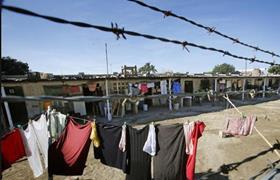
Rene Produce, one of the companies named in an investigation by the Los Angeles Times into the widespread ill treatment of Mexican farm workers, is to introduce measures to strengthen its labour policies and procedures.
Speaking exclusively to Fruitnet, chief operating officer Jose Humberto Garcia said that while the company believed the issues raised by the report were taken out of context and were grossly exaggerated, it nevertheless presented an opportunity for the company to tighten up existing procedures.
“While we are obviously concerned about how Rene Produce was portrayed in the article, we believe that our extensive history of socially responsible business practices demonstrates the real story of our company,” Garcia told Fruitnet.
One of the accusations levelled by the newspaper was that workers are forced to pay inflated prices for necessities at company stores. Garcia said that from next months, all stores on the company’s farms would be state supported to ensure that workers receive fair and consistent pricing.
The firm has already started putting warning signs on irrigation canals – a process due to be completed by 15 January – after claims that workers and their families have no option but to bathe in them when supplies of clean water run out. Furthermore, it is taking immediate steps to strengthen its complaints process to ensure that supervisors can proactively address any issues related to worker welfare that may arise.
Garcia pointed out that Rene Produce offers workers one of the most comprehensive wages and benefits package in the industry and that 90 per cent of the company’s workers return to its farms each year because it offers competitive wages and a comprehensive benefits package.
“Many have been with us for 15-20 years, during which time they and their families received free housing, medical and dental care, healthy meals and an education,’ he said.
“Our founder Rene Carrillo regularly picked vegetables alongside workers in the fields. He recognised that building communities for our workers and their families was not only the right thing to do, but would also create a healthier, more productive and committed workforce.
“That philosophy still guides us today. We have helped provide over 20,000 children with an education and an opportunity for a better life.”
Garcia also stressed that while there were already a number of laws and regulations in place, more can always be done to protect workers.
“Our industry has a history of working in cooperation with government to enhance worker health and safety – that history of cooperation helped virtually eradiate child labour in most of Mexico’s major growing regions.”



